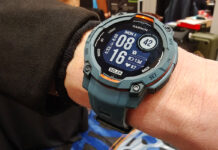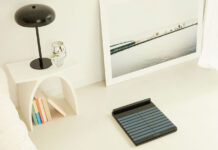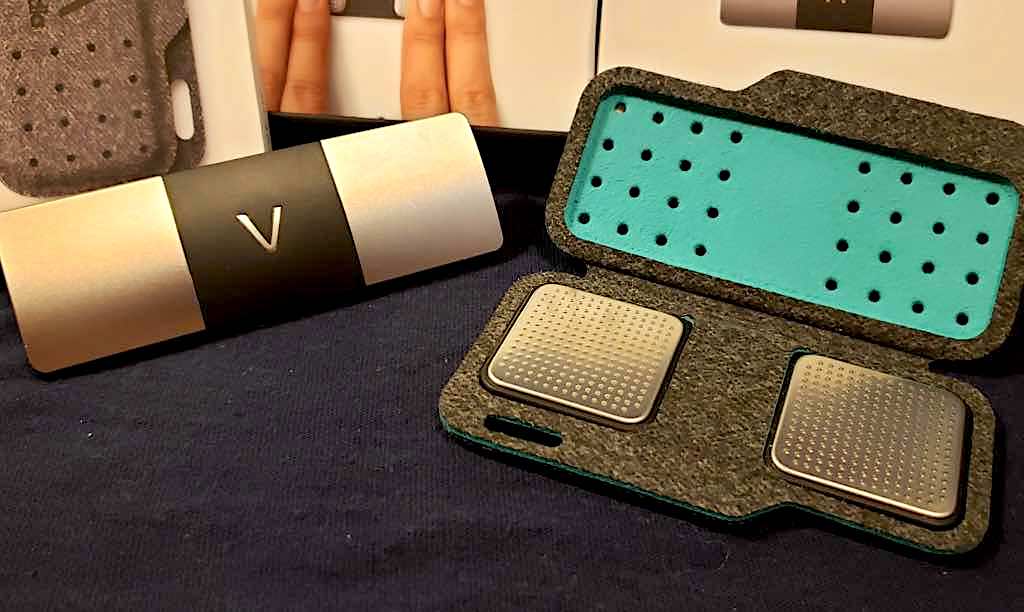
Today it’s a double Kardia event! As in, I’ve got a double review for you. I have both the Kardia Mobile Personal EKG Monitor and the AliveCor KardiaMobile 6L Portable EKG Monitor. I’ll also be taking a look at the Kardia Mobile Carry Pod for Personal EKG Monitor, which can accommodate the smaller of the 2 EKG units so you can carry it with you on your key ring. If being able to track and monitor your heart rate and other vital heart information wherever you go sounds like a useful proposition to you, read on to learn all about these handy, portable devices and to hear my own experience with them.
But before we get down to business, you might want to take a couple of minutes to check out my video overview of these products. In it I show the devices up close, run through a few key tidbits of information, and give you a look at the Kardia Mobile Personal EKG Monitor in action:
KardiaMobile personal EKG monitor review
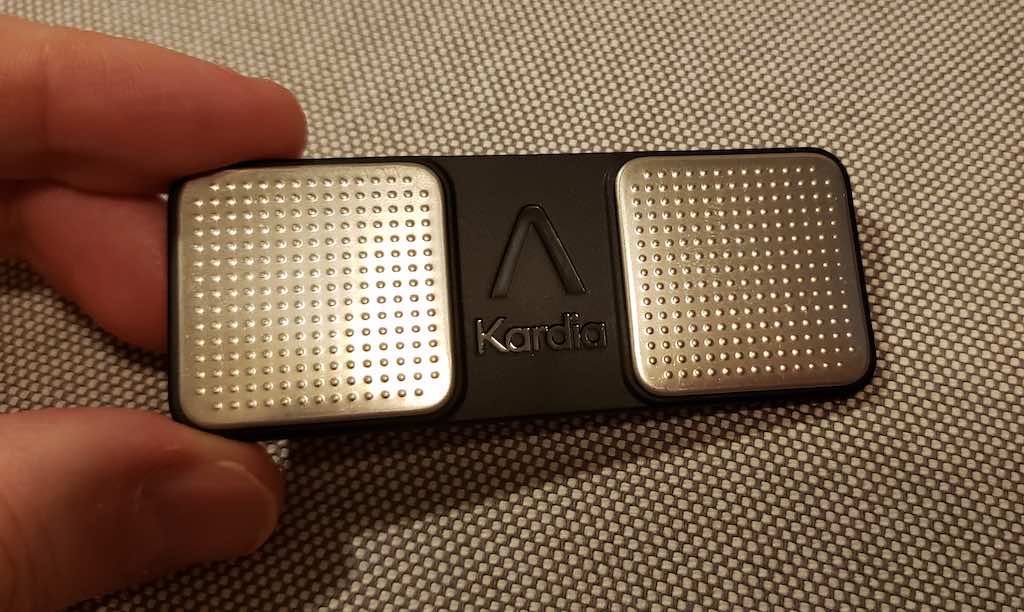
First up is the Kardia Mobile Personal EKG Monitor. This EKG monitor is compact yet powerful, and in just 30 seconds it can easily give you a medical-grade EKG reading. This means that if you have certain abnormalities in your heartbeat, you’ll know about it quickly and with great accuracy thanks to this highly portable Kardia monitor.
It can detect atrial fibrillation, tachycardia, bradycardia, and even whether or not you have a normal sinus rhythm. Finding out about any of these conditions now will enable you to discuss them with your doctor and work from there to take whatever steps may be necessary to maintain optimal health.
As the Kardia Mobile Personal EKG has built in Bluetooth connectivity, it can pair to your iOS or Android based smart phone via the Kardia App so that you can take EKG readings and store them on your device or share them with your doctor or other medical personal via e-mail—a very useful feature for anyone with heart issues that must be closely monitored.
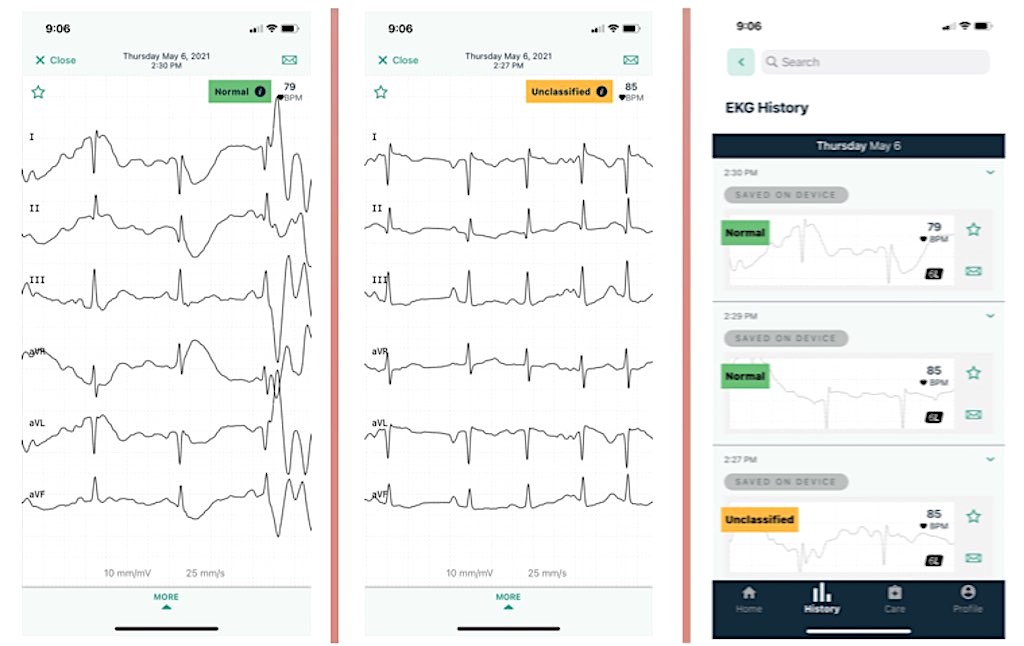
In fact, both the Kardia Mobile Personal EKG and the AliveCor KardiaMobile 6L Portable EKG Monitor have this feature, which allowed me to test them using both the iOS and Android operating systems (using my Samsung phone and my wife’s iPhone) to find out if everything would run smoothly on either type of device. And it did. In fact, both versions of the Kardia App are easy to connect to your device and easy to use after a bit of exploring the app and getting used to their operation and the specialized language of EKG technology, which does take a little getting used to.
One noteworthy tidbit is that while my wife’s iPhone would allow screen captures of the Kardia App (shown above) to be taken, my Android phone would not. A message kept popping up saying that it was against their privacy policy (or something similar). As yet I have not been able to determine if this is something I can disable in the settings, so all of the app images I’m providing in this blog are from the iPhone. Note that in some instances a reading may be labeled as unclassified, in which case you may want to rerun the test.
AliveCor KardiaMobile 6L portable EKG monitor review
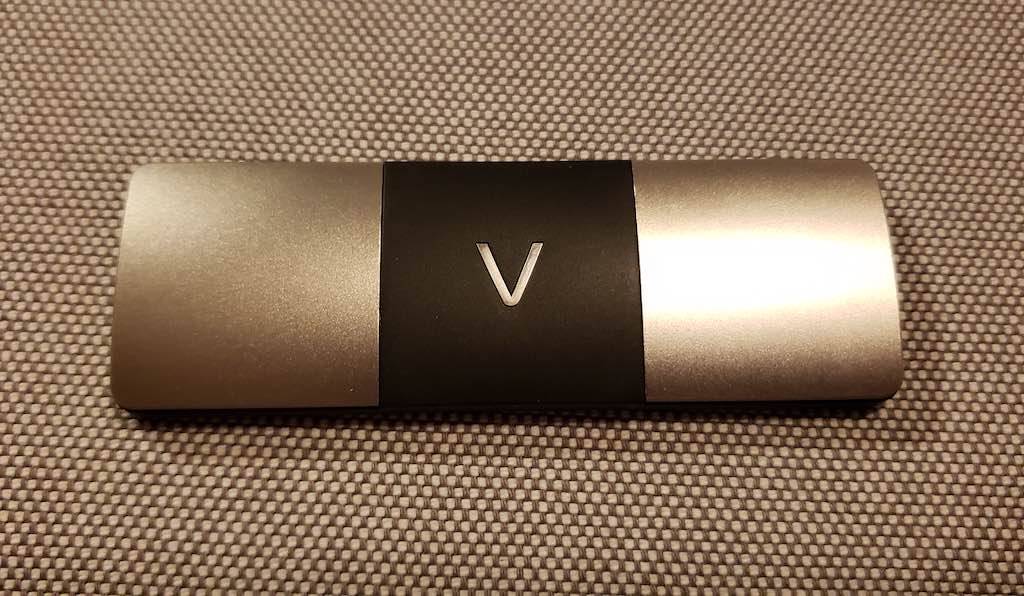
If you’d like a portable EKG with even more features to recommend it, there’s the AliveCor KardiaMobile 6L Portable EKG Monitor. This EKG Monitor is no less portable than its cousin, even though it has 6 leads to help provide a more complete picture of how your heart is functioning. It’s also every bit as easy to use as the other model, and can detect both normal and abnormal heart rhythms quickly and accurately thanks to its powerful sensors.
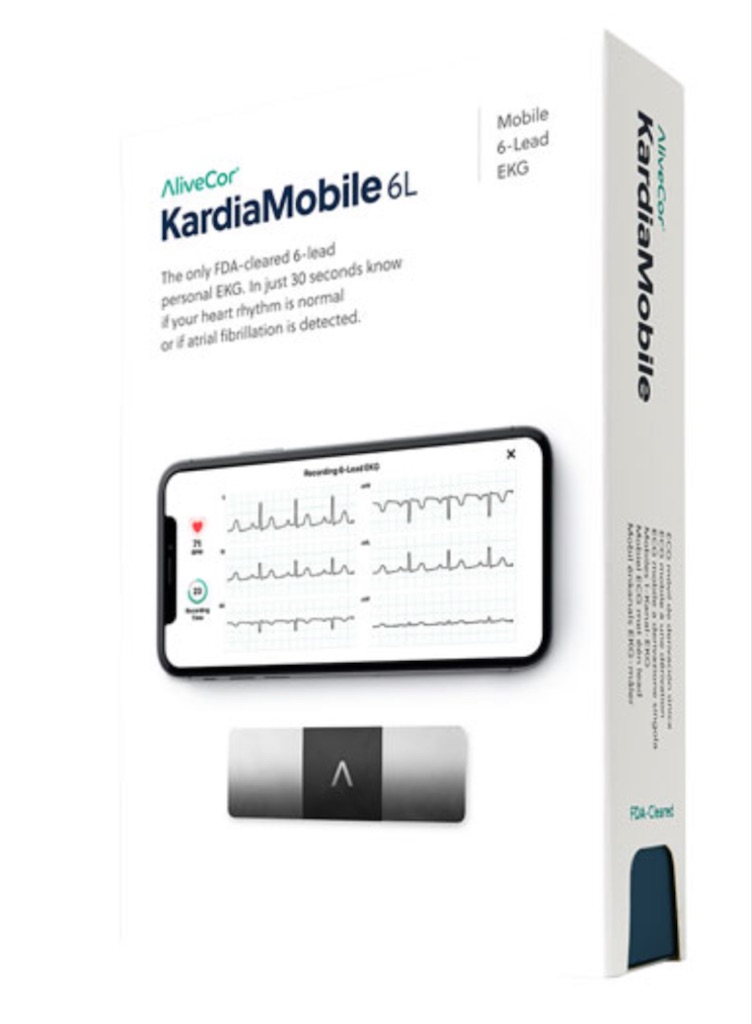 In testing each of these devices, I found them both to work well with very little difficulty. There was no trouble getting them to connect to the Kardia App via Bluetooth, and running the actual tests was also very easy. For instance, placing 2 different fingers (one from each hand) on the electrodes will automatically begin running a test if the app is open and ready to go. In just 30 seconds you will know things like your current heart rate in BMP (beats per minute) and whether or not you have any rhythm abnormalities in your heartbeat.
In testing each of these devices, I found them both to work well with very little difficulty. There was no trouble getting them to connect to the Kardia App via Bluetooth, and running the actual tests was also very easy. For instance, placing 2 different fingers (one from each hand) on the electrodes will automatically begin running a test if the app is open and ready to go. In just 30 seconds you will know things like your current heart rate in BMP (beats per minute) and whether or not you have any rhythm abnormalities in your heartbeat.
At times you may get a message such as there was electrical interference interrupting the test or some other error message. This can happen if you run the test close to other electrical devices. I found that having my laptop too close when running a test would sometimes interfere. You can easily rectify such issues by removing any electrical wires or devices from the immediate area except for your smart phone and the EKG monitor itself. For best results it seems that everything should remain as still and calm as possible throughout the test. Having both the phone and the device laying flat on a table is probably the best way to go.
As all of my own (conclusive) tests came up with everything showing as normal and my heart rate being about what I would expect it to be, I believe that the devices are doing their jobs properly and accurately.
KardiaMobile carry pod for personal EKG monitor
 Finally, there’s the Kardia Mobile Carry Pod for Personal EKG Monitor (sold separately), which perfectly holds the Kardia Mobile Personal EKG Monitor. With this carrying pod, you can carry your Kardia Mobile on your keychain and take it wherever you go. Unfortunately, it’s slightly too small to properly hold the AliveCor KardiaMobile 6L Portable EKG Monitor (the device is just a little bit too long for this carrying case), but technically you can still squeeze it in there if you want to, as I have shown in the above image. Since the case closes magnetically, it will hold and protect your device against everyday bangs and bumps, and you can even use the device without taking it out of the pod—just open it up and the electrodes will be exposed and ready to use.
Finally, there’s the Kardia Mobile Carry Pod for Personal EKG Monitor (sold separately), which perfectly holds the Kardia Mobile Personal EKG Monitor. With this carrying pod, you can carry your Kardia Mobile on your keychain and take it wherever you go. Unfortunately, it’s slightly too small to properly hold the AliveCor KardiaMobile 6L Portable EKG Monitor (the device is just a little bit too long for this carrying case), but technically you can still squeeze it in there if you want to, as I have shown in the above image. Since the case closes magnetically, it will hold and protect your device against everyday bangs and bumps, and you can even use the device without taking it out of the pod—just open it up and the electrodes will be exposed and ready to use.
Final thoughts

Each of the two Kardia EKG monitors discussed here today impressed me enough to recommend a purchase of either for anyone with an interest in (or solid medical reason for) having anytime-access to the kinds of information they provide. The carrying pod is also useful if you get the monitor that it was designed to fit.
Each of these products seems to deliver what it promises, and the information they provide could potentially help you to detect heart issues that you definitely want to know about as early as possible. And that’s about as much as anyone can expect from any Health Tech product. Find these and many others at Best Buy Canada today.

